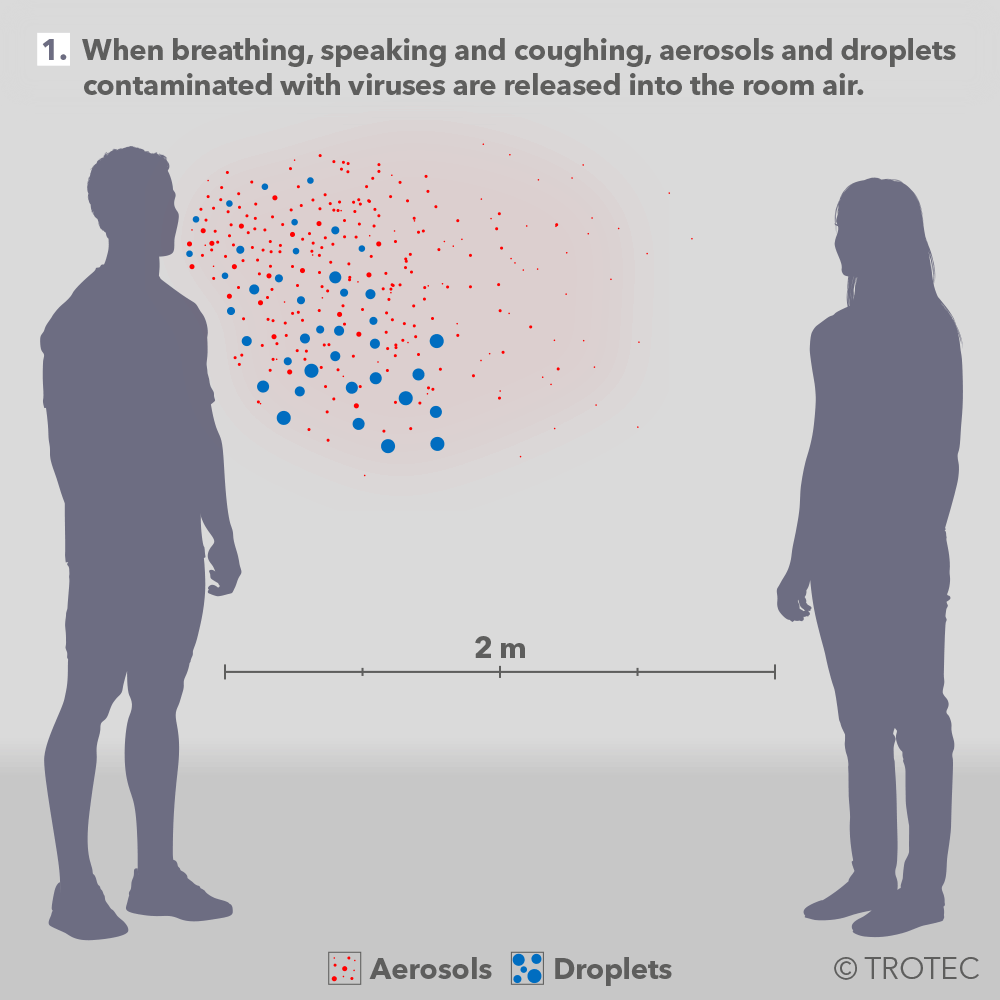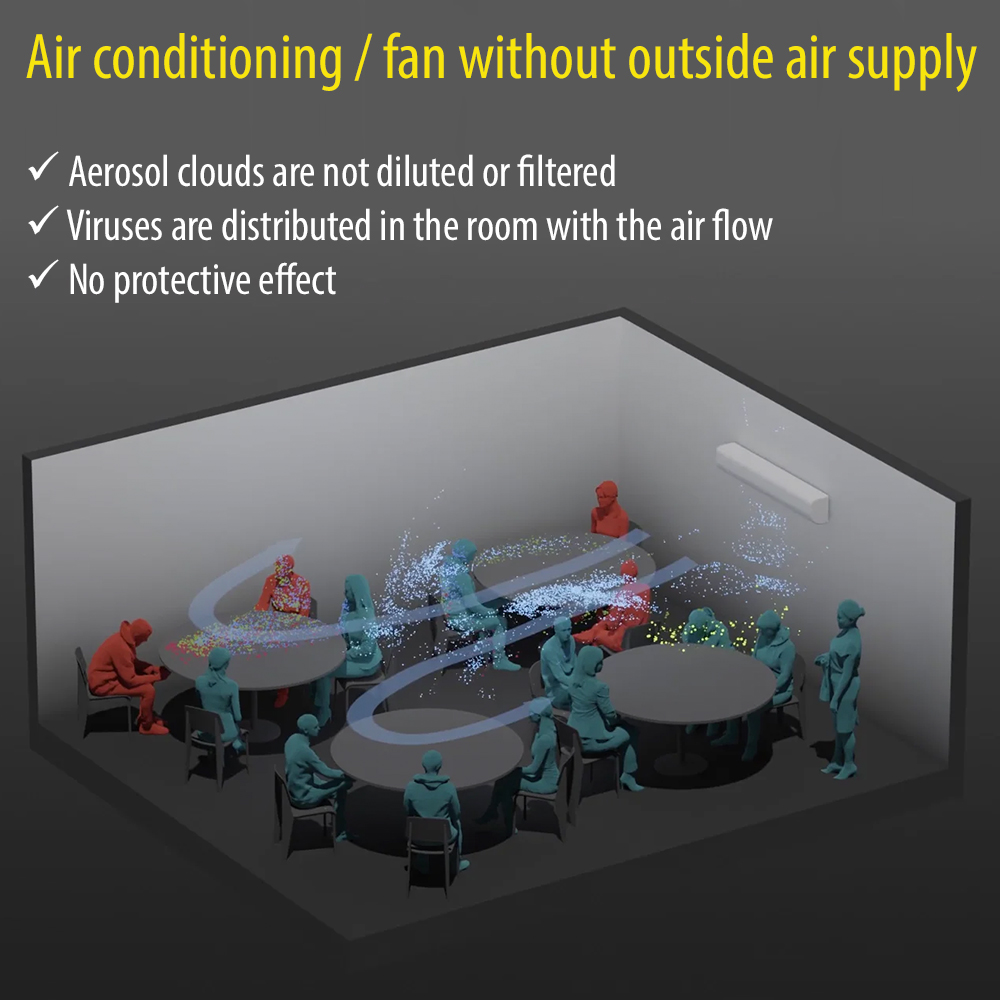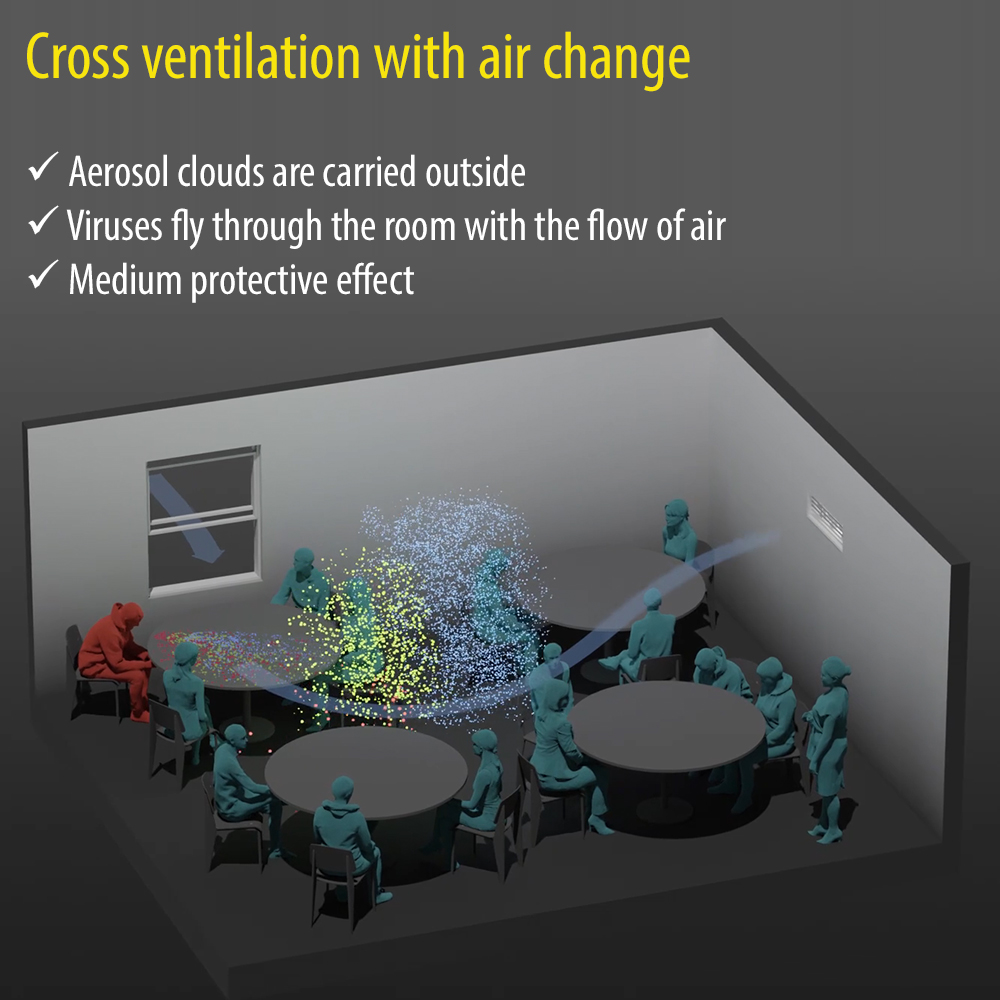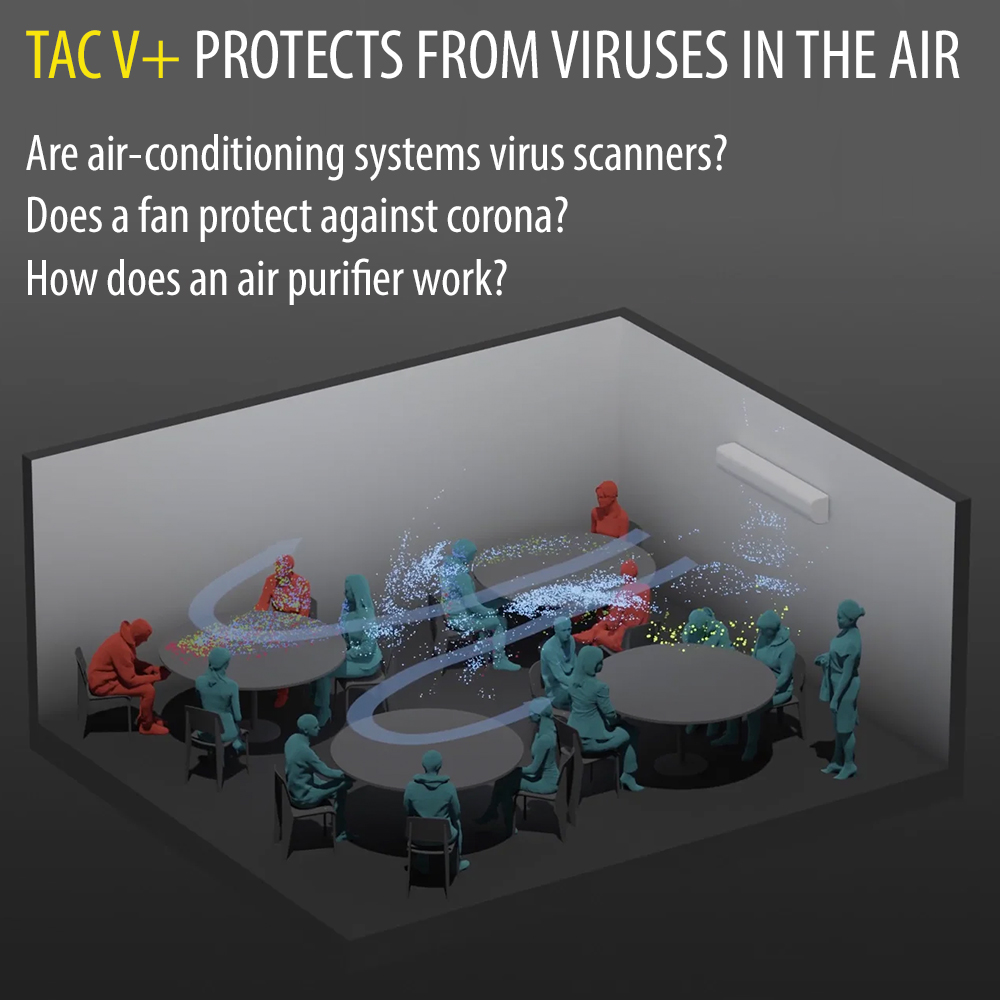During the coronavirus pandemic, dangerous untruths, recommendations and superficial knowledge spread like wildfire on social media. For example, air conditioning units are branded as “virus spinners”, while fans are advertised as offering protection against infectious aerosols in the air – regardless of whether the window is open or closed. Which of these statements is true? What do you need to know about air conditioning units and fans in connection to the coronavirus? Let us explain below.
How are room air and the coronavirus connected?
Virologists are in agreement: The coronavirus spreads mainly via respiration and only to a lesser extent via smear and droplet infection. When breathing and speaking, thousands of aerosols (tiny saliva particles) are expelled into the room in a kind of “drizzle”. These particles, invisible to the naked eye, float in the room air for several hours. In sick people, viruses or bacteria adhere to these suspended particles. When infectious aerosols are inhaled, the viruses penetrate deep into the lung alveoli via the airways.

Breathing masks with a particle filter and high frequency air purifiers such as the TAC V+ from Trotec offer protection against aerosols in closed rooms. Mouth-nose masks, on the other hand, do not protect against the inhalation of infectious aerosols. They only stop large droplets.
Is indoor and outdoor air equally dangerous?
Outdoors, aerosols expelled when speaking are distributed and diluted by natural air circulation. The risk of inhaling viruses expelled by other people while speaking is therefore rather low. In closed rooms – without air circulation – however, the aerosol concentration in the room air increases with each additional person. Aerosol clouds float undiluted in the room and the danger of inhaling infectious viruses via the air is relatively high.
How does the operation of an air conditioning unit affect the risk of infection?
The air recirculation units, which are mostly commercially available, cool the existing room air but do not use a fresh air supply from outside. In addition, unlike the TAC V+ air purifier or the TES 200 with H14 HEPA filter, commercial air conditioning units do not have a special HEPA filter to filter out airborne viruses or bacteria. Viruses in the room air are distributed over a large area in the room by the airflow – hence the term “virus spinner”.
- Air recirculation units, which are installed in most cases, therefore do not protect against the coronavirus. Aerosol clouds are not diluted or filtered out. The filters installed in air conditioning units are just “lint filters” that protect the cooling section from contamination by dust and hair.
- The air blown out by the air conditioning unit distributes virus-carrying aerosols into the most remote corners of the room where they are inhaled despite the minimum distance being maintained.

Does a fan protect against infection when the window is open?
Some virologists recommend placing a fan in front of the open window in order to expel the germ-contaminated room air outside. This works in theory. The airflow generated by the fan sucks in the room air and blows the viruses out the window. In practice, however, this is unrealistic. It may seem practical to keep the window open with the fan on in summer. But what about in winter – what about when there is heavy rain, strong wind or a high pollen count? And would a draft cause discomfort? How can you work comfortably in the office if street noise is roaring through the open window? This recommendation can’t be implemented in nursing and care homes either. Older people in care homes need a lot of warmth – and an open window may have serious consequences.
- Keeping the window open when the fan is on actually reduces the risk of infection. This is due to the dilution effect associated with the fresh breeze supplied from the outside air.
- However, this measure to protect against infection is only practical to a limited extent and is especially difficult to implement in bad weather or where old people are involved.
Does a fan protect against infection when the window is closed?
In closed rooms, a fan offers the same protection against infection as an air recirculation unit. Incorrect. Without a supply of fresh air from outside, the room air is simply moved around rather than diluted. Additionally, fans have no filter effect.
- A fan in a closed room therefore does not protect against the coronavirus. Aerosol clouds are not diluted or filtered out.
- The opposite is true. The air blown out by the air conditioning unit distributes virus-carrying aerosols into the most remote corners of the room where they are inhaled despite the minimum distance being maintained.

Only a high frequency air purifier such as the TAC V+ with HEPA filter and high air performance provides effective protection against viruses in the room air
The TAC V+ mobile air purifier cleans the room air just as effectively as is only the case in hygiene-sensitive clean environments and hospital operating rooms. This is made possible by the high air performance of 1,600 m³/hour and the innovate H14 HEPA virus filter. The room air is sucked in near the floor, freed from bacteria and viruses by the HEPA filter and returned to the room as germ-free clean air. Depending on the room size, the room air is circulated and cleaned up to 20 times per hour. In this way, spontaneously occurring aerosol clouds at head level are directly diluted with very large quantities of clean air in such a way that the viral load and risk of infection are considerably reduced. No installation or complicated connections necessary. Simply plug in and immediately ensure maximum possible protection against infection.
The TAC V+ is now available in various different colours for £3,797.04 in the Trotec shop. For further information on this unit, please contact our technical adviser:
Trotec GmbH, Mr Jochem Weingartz
Telephone: +49 2452 962-137, jochem.weingartz@trotec.com


